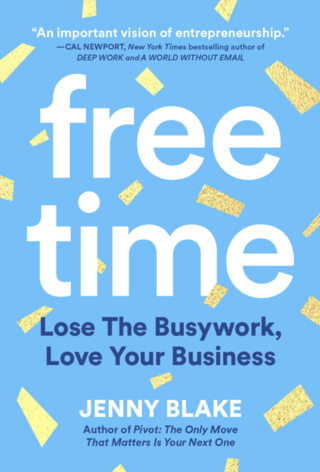Career
Create Free Time Within Your Overwhelmed Work Life
Changing how you do work can make more room for life.
Posted August 18, 2022 Reviewed by Vanessa Lancaster
Key points
- If you feel like abandoning your business or quitting your job, it may be that you're not working sustainably.
- Know your primary values in work and life, and let these drive your choices and the way you work.
- Simplify, streamline and systematize your processes to free up more time for what matters.

Since the pandemic hit, I’ve worked with more than eighty organizations across virtually every type of industry. I’ve heard, from every single one, that people are burdened with unprecedented workloads. The recent “Great Resignation” made this worse, as more and more companies find themselves short-staffed.
I’ve been busier than ever, too. Given the increasing rates of burnout and mental health disorders, it seems everyone wants a presentation on those topics in the workplace. I’ve waited twenty years to see this level of interest in these essential topics. Ironically, now it’s much harder for me to protect my well-being. I have to be very careful not to fall into burnout.
The book Free Time: Lose the Busywork, Love Your Business, by podcaster, author, and ex-Googler Jenny Blake, arrived in my life at just the right time. Blake, who is staggeringly productive while maintaining an enviably balanced life, shares her vision and strategies for an impactful work life, defined by surprising amounts of ease and joy.

The book is written for entrepreneurs and business owners, but some of the principles would be useful to anyone. I’ll list some of my favorite perspectives from the book and my comments.
“The impulse to burn it all down is a signal flare.”
Burnout consists of three core symptoms: emotional exhaustion, increasing negativity and cynicism about work and decreased productivity and personal accomplishment. The latter often causes people to want to quit their jobs or for entrepreneurs to be tempted to just “burn it all down.”
Blake states, “These torching fantasies are a sign you are not working sustainably. Something is off, whether your schedule, projects, margins, clients, day-to-day work, team, delegation, or a mix of all of the above.”
I always say to be careful not to make major life decisions (such as quitting) from a worn-out, fried place. Take some time to assess what is most “off” about your work life. Is it something you can shift or change? Can you ask for help with it? Could certain things get taken off your plate? Can you put in better work-life boundaries? A qualified counselor or coach can be very helpful in this process.
“Know what enough looks like, what is worth pursuing and what isn’t.”
As Blake points out, business or career success typically increases stress. More opportunities come, along with more work. It can feel heady, especially if accompanied by increasing income. And it can be hard to say no to any of it.
Blake has learned to intentionally “avoid chasing the hungry ghosts of money, fame, power, and control,” which she calls the “Four Horsemen of the Business Ambition Apocalypse.”
Have any of these “Horsemen” been galloping away with your life? What are your most important values? Have you lost sight of these as your work life has gotten busier or more successful?
“Listen to the urges to simplify, streamline and de-stress.”
When we get busy, we often just push ourselves harder without stopping to analyze or strategize what we’re doing and how we’re doing it. Planning is key to reducing overwhelm and your risk of burnout by increasing your sense of control.
How can you simplify your work tasks? Can you streamline your ways of doing things? What simple changes could you make to how you do your work to reduce your day-to-day stress?
Employers are more willing to listen to their workforce than ever. Speak up about the changes that would make your work life better, and implement whatever changes you can make on your own.
Free your time through smarter systems.
I’ve followed Jenny Blake’s work since the early days, and systems are her superpower. She systematizes every possible process in both her work and personal life. This is the primary secret to her ability to free time and supercharge productivity (and what the book is fundamentally about).
Are there things you repeatedly do at work or home that could be automatized? Could you change how you do frequent, repetitive tasks to reduce the number of steps?
I am creating a shared Google Doc with my husband for maintenance tasks that need to be done around our home. Instead of holding this list (and related conversations) in our heads, it’s all in one place. We’ve also used a shared grocery list that both people can update using a shared notes file on our phones. There are many ways you can create these systems at work and home.
“There is no scenario where a burned-out business owner does better than one who is energized, expansive and engaged.”
This sentence resonated with me more than any other. How we approach work in our society inevitably pushes us down the black hole of burnout. We’re always trying to get more done and squeeze more out of ourselves and our days.
I continually speak to groups about the importance of work-life boundaries, life-giving health and lifestyle choices, and pacing and planning. A carefully tended life, body, and mind will be the most sustainable and successful over the long term.
Of course, much of the burnout we see in our culture is driven by unsustainable workloads, unrealistic expectations of workers, and toxic workplace cultures. It’s not all on the individual. Still, there is much that you can do to support your well-being.
Blake emphasizes the need for regular “Founder’s Time” for entrepreneurs, protected time in your week where you can assess your business and activities and strategize and readjust. This is so important for leaders of any kind.
All of us should regularly take stock of our lives, the choices we have been making, and the changes we need to make to continue aligning with our most important values.
To find a therapist near you, visit the Psychology Today Therapy Directory.
Copyright 2022 Dr. Susan Biali Haas




